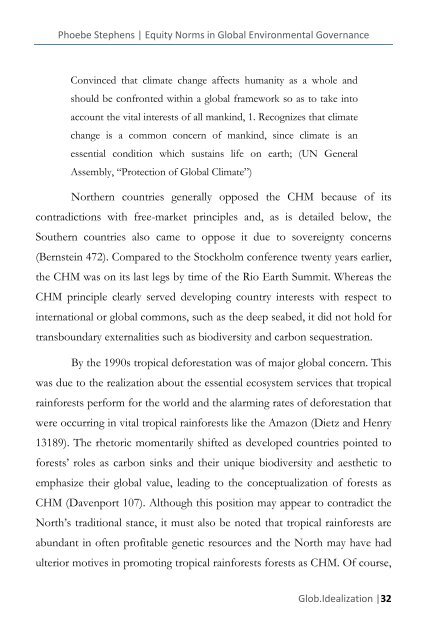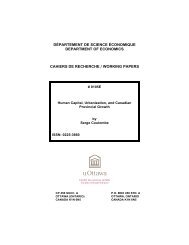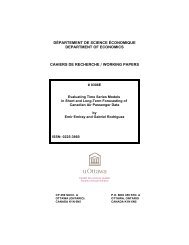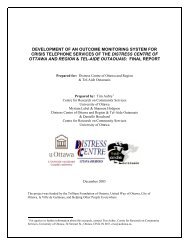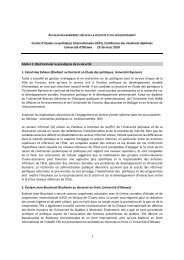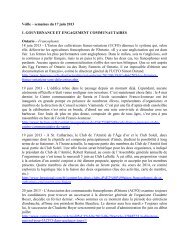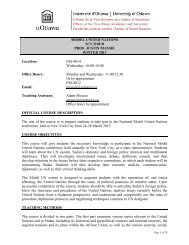GLOB.IDEALIZATION MOND.IDÉALISATION - Faculty of Social ...
GLOB.IDEALIZATION MOND.IDÉALISATION - Faculty of Social ...
GLOB.IDEALIZATION MOND.IDÉALISATION - Faculty of Social ...
You also want an ePaper? Increase the reach of your titles
YUMPU automatically turns print PDFs into web optimized ePapers that Google loves.
Phoebe Stephens | Equity Norms in Global Environmental Governance<br />
Convinced that climate change affects humanity as a whole and<br />
should be confronted within a global framework so as to take into<br />
account the vital interests <strong>of</strong> all mankind, 1. Recognizes that climate<br />
change is a common concern <strong>of</strong> mankind, since climate is an<br />
essential condition which sustains life on earth; (UN General<br />
Assembly, “Protection <strong>of</strong> Global Climate”)<br />
Northern countries generally opposed the CHM because <strong>of</strong> its<br />
contradictions with free-market principles and, as is detailed below, the<br />
Southern countries also came to oppose it due to sovereignty concerns<br />
(Bernstein 472). Compared to the Stockholm conference twenty years earlier,<br />
the CHM was on its last legs by time <strong>of</strong> the Rio Earth Summit. Whereas the<br />
CHM principle clearly served developing country interests with respect to<br />
international or global commons, such as the deep seabed, it did not hold for<br />
transboundary externalities such as biodiversity and carbon sequestration.<br />
By the 1990s tropical deforestation was <strong>of</strong> major global concern. This<br />
was due to the realization about the essential ecosystem services that tropical<br />
rainforests perform for the world and the alarming rates <strong>of</strong> deforestation that<br />
were occurring in vital tropical rainforests like the Amazon (Dietz and Henry<br />
13189). The rhetoric momentarily shifted as developed countries pointed to<br />
forests’ roles as carbon sinks and their unique biodiversity and aesthetic to<br />
emphasize their global value, leading to the conceptualization <strong>of</strong> forests as<br />
CHM (Davenport 107). Although this position may appear to contradict the<br />
North’s traditional stance, it must also be noted that tropical rainforests are<br />
abundant in <strong>of</strong>ten pr<strong>of</strong>itable genetic resources and the North may have had<br />
ulterior motives in promoting tropical rainforests forests as CHM. Of course,<br />
Glob.Idealization |32


